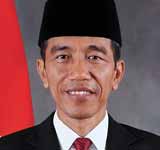1. Xi Jinping
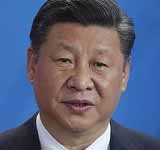
Xi was elected General Secretary of the Chinese Communist Party on November 15, 2012 in a vote held by 18 Chinese Communist Party National Congresses in Beijing. Xi was elected President of the People's Republic of China on March 14, 2013 in a vote held by the National People's Congress. He received 2,952 votes, with one vote disagreeing and three abstaining votes.
2. Vladimir Putin
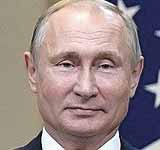
In Russia, Putin's leadership enjoys considerable popularity, with high overall approval rates. On the other hand, several of its actions have been characterized by the opposition as undemocratic. Western observers and organizations have also joined voices to criticize Putin's government. The 2011 ranking of the Democracy Index pointed out that Russia is in a long process of regression thanks to the shift from a hybrid government to an authoritarian regime under Putin.
3. Donald Trump
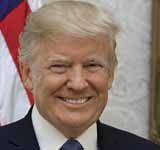
Trump began his career in his father's company, The Trump Organization, which concentrated on the field of middle-class home rentals. One of his first projects was renovating the Swifton Village apartment complex in Cincinnati. Trump changed the 1200 unit apartment complex and raised the tariff by 66% to 100%. When reselling Swifton Village for US $12 million, the Trump Organization made a profit of US $6 million.
4. Angela Merkel
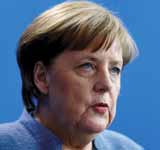
Merkel is considered the de facto leader of the European Union. She was also chosen as the second most powerful figure in the world according to Forbes magazine in 2012 and 2015, the highest ranking ever achieved by a woman. In December 2015, Time magazine chose Merkel as the Person of the Year with the nickname Chancellor of the Free World. On March 26, 2014, Merkel officially became head of the incumbent government with the longest term in the European Union.
5. Mohammad bin Salman
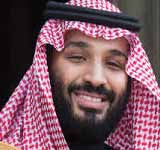
10 April 2007, He was appointed as a part-time Advisor at the Intelligence Agency in the Cabinet. April 29, 2015 was issued a Royal Decree on the appointment of Muhammad bin Salman bin Abdul aziz Al Saud as Deputy Crown Prince and Second Deputy Prime Minister, Minister of Defense and Chair of the Council for Economic and Development Affairs.
6. Narendra Modi
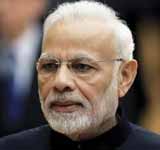
Modi is a Hindu nationalist and member of the Rashtriya Swayamsevak Sangh (RSS). He is a controversial figure both in India and internationally due to allegations of Modi's involvement in the 2002 Gujarat riots. Modi's economic policies have been praised for being able to generate high economic growth in Gujarat. However, his government was also criticized for failing to achieve significant progress in human development.
7. Jerome Powell
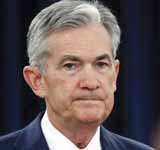
He served as Deputy Minister of Finance in Domestic Finance during George HW Bush's reign in 1992. He was a visiting researcher at Bipartisan Policy Center in 2010 to 2012. He has served as a member of the Federal Reserve Board of Governors since 2012.
8. Emmanuel Macron
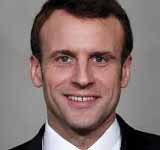
Macron was a member of the Socialist Party (France) from 2006 to 2009. From 2014 to 2016 he was the deputy secretary of the Eliez castle, who was a high-ranking Presidential candidate of Olympia. He was appointed the Ministry of Economics and Finance in the 2014 Wals Cabinet. In August 2015, he was not a member of the Socialist Party and became an Independent.
9. Theresa May
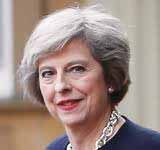
She is known as a one-nation conservative and a liberal conservative. After leaving the office of Cameron, Theresa and Andrea Leadsom were opponents of each other for the post of prime minister after two phases of polling. Leadsom withdrew her name even before the election. After that, Theresa sure to become PM.
10. Li Keqiang
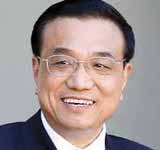
He joined the party in 1976. He became active in politics from 1978 to 1982 as head of the university's student union. In the 1980s, he was in the top category of the party's youth league when Hu was the head of the organization. Li was elected as the party's deputy secretary in Henan Province in 1998 and became the secretary of the party in Liaoning Province in 2004.
11. Sayyid Ali Hosseini Khamenei
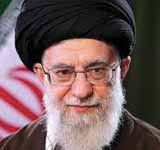
Ali Khamenei was one of the most active participants of the Islamic revolution and one of the closest partners of Ruhilona Hanei. After the revolution, they published the newspaper "Jumhuriye Islami". Ruhillo Homeyni Ali Khamenei is appointed as the imam of the mosque in Tehran (then a place of national and national political messages in Tehran). In this position he replaced Ayatulla Hussain Ali Montazari. He later worked as a deputy Commander of the Military Command in the government of Abulhasan Banisadr. Khomanii has repeatedly visited the frontlines on behalf of the parliamentary committee during the Iranian-Iraq war.
12. Benjamin Netanyahu
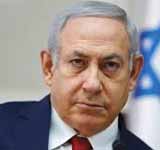
Benjamin Netanyahu became leader of the Likud in 1993 and won the 1996 elections, becoming the youngest prime minister in Israel's history, serving his first term between June 1996 and July 1999. He left the political arena for the private sector after of having been defeated in the 1999 election of prime minister by Ehud Barak. Netanyahu returned to politics in 2002 as Minister of Foreign Affairs (2002-2003) and Finance Minister (2003-2005) in the governments of Ariel Sharon, but he left the government because of disagreements regarding the disengagement plan of the Gaza Strip. As Minister of Finance, Netanyahu committed to a major reform of the Israeli economy, which was recognized by commentators for significantly improving Israel's subsequent economic performance.
13. António Guterres
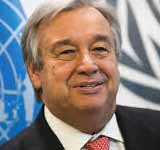
António Guterres is Portuguese politician and diplomat. Guterres was the Prime Minister of Portugal from 1995 to 2002. Guterres has also worked for ten years in the United Nations refugee organization. He got clear majority in the Security Council poll. This was followed by his name being declared as the next Secretary-General. Guterres is the 9th general secretary of the United Nations. He was born on 30 April 1949 in Lisbon, capital of Portugal. He had his early education at the secondary school, Camões Lyceum (now Camões Secondary School). In the year 1971, he received a bachelor's degree from the University of Lisbon. After this he started teaching as Assistant Professor.
14. Jean-Claude Juncker
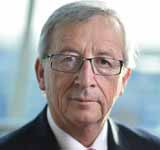
Jean-Claude Juncker is a Luxembourgish politician who is a member of the Christian Social Popular Party (PCS or CSV). He has been president of the European Commission since November 1, 2014. He has held the position of prime minister on several occasions and held other ministerial functions in Luxembourg. In the ambit of the European Union, he has served as President of the European Council in the second half of 1997 and in the first half of 2005, and until January 21, 2013 he served as president of the Eurogroup.
15. Kim Jong-un
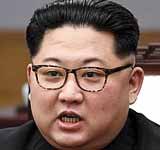
Kim Jong-un is a North Korean politician and soldier. He is the youngest son of dictator Kim Jong-il. On April 13, 2012, he succeeded his father as chairman of the National Defense Commission of the Democratic People's Republic of Korea and thus as de facto head of state of North Korea. On 29 June 2016, this committee was dissolved and he became chairman of the new State Affairs Committee of the Democratic People's Republic of Korea. By the Korean Workers Party he is also called the Brilliant Comrade and the Great Leader.
16. Shinzō Abe
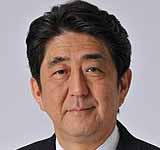
Shinzō Abe is a Japanese politician from the Liberal Democratic Party (LDP). He has been Prime Minister of Japan since 2012. He was previously prime minister from 2006 to 2007. Abe was the youngest prime minister, and the first to be born after the Second World War. He is seen as a conservative politician. In 1999, Abe became director of the Social Affairs Division, and government spokesperson for Prime Minister Yoshiro Mori. On October 31, 2005, he again became government spokesperson, now from his predecessor, Prime Minister Junichiro Koizumi. He succeeded Hiroyuki Hosoda. In 2003, he was elected the Secretary General of the LDP.
17. Khalifa bin Zayed Al Nahyan
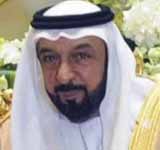
Sheikh Khalifa bin Zayed bin Sultan Al Nahayan has been President of the United Arab Emirates since November 3, 2004. He is also the Emir (Royal title used in Islamic countries) of Abu Dhabi. Al Nahayan became Deputy Prime Minister of the UAE in 1971 and five years later he was appointed Deputy Commander of the Armed Forces. Al Nahayan is known as moderate prowesters and in 2005 he took the first cautious steps towards a more democratic order for the UAE by, among other things, having half of the members of the Federal National Council indirectly elected by the people. However, concrete plans and an election date have not yet been set.
18. Haruhiko Kuroda
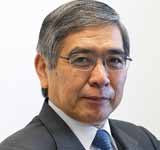
Haruhiko Kuroda is the 31st Governor of the Bank of Japan (BOJ). Previously, he was president of the Asian Development Bank, February 1, 2005 and March 18, 2013. Kuroda has been in favor of a more flexible monetary policy in Japan. His appointment in February 2013 by the incoming government of Prime Minister Shinzō Abe had been expected. At the same time, Kikuo Iwata was also nominated - "a harsh critic of past BOJ policies" - and Hiroshi Nakaso, a senior BOJ official in charge of international affairs, such as the two Kuroda subalterns. The former governor, Masaaki Shirakawa, left the post in March 2013.
19. Abdel Fattah el-Sisi
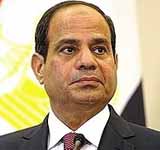
Abdul Fatah Saeed Hussein Khalil al-Sisi, better known as General Sisi, is an Egyptian politician and soldier. He has been the President of Egypt since 8 June 2014. In 1977 he graduated from the Egyptian Military Academy. He then served with the mechanized infantry specializing in handling anti-tank weapons and mortars. In 2008, Sisi became commander of the Northern Military Region of Alexandria. After this he became director of the military intelligence and security service. In that capacity he became the youngest member of the Supreme Council of the Armed Forces. In January 2014, he was promoted to the highest rank of marshal by interim president Adly Mansour.
20. Recep Tayyip Erdoğan
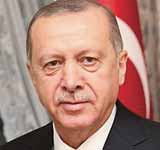
Recep Tayyip Erdoğan has been the President of Turkey since 2014. From 1994 to 1998 he was the mayor of Istanbul, and from 14 March 2003 to 28 August 2014 he was the 25th Prime Minister of Turkey. He founded the AKP in 2001. After his election as president in 2014, he had to resign the leadership of the AKP because, according to the constitution, the president could not be a member of a political party. This ban was canceled in 2017, after which Erdoğan was again elected party leader.
21. Michel Temer
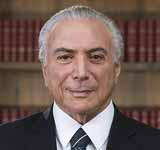
Michel Miguel Elias Temer Lulia is a Brazilian politician. He was the 37th president of Brazil, from August 31, 2016 to January 1, 2019. From 2011 to 2016, he was Brazil's 24th vice president under President Dilma Rousseff. Following the removal proceedings against Rousseff, Temer was appointed as interim president on 12 May 2016. With the deposition of Rousseff on August 31, 2016, Temer became president that day. He was appointed to the presidential election in 2018 and succeeded on January 1, 2019 by Jair Bolsonaro.
22. Michael Bloomberg
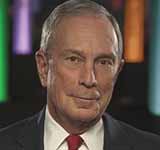
Michael Rubens (Mike) Bloomberg is an American entrepreneur and the founder of Bloomberg LP From 2002 to 2013 he was the mayor of New York. Bloomberg was a member of the Democrats until 2001, when he moved over to the Republicans and applied for Mayor of New York. He was elected in November 2001 with 50.3% of the votes. He was re-elected in November 2005 with 58.38% of the votes. In 2008 he left the Republican party and continued as an independent. Since there was a limit on the number of time limits, he could not go for a third time in November 2009. The New York City Council held a controversial vote to raise the limit from two to three time limits, making Bloomberg still eligible for election set. His third term expired at the end of 2013 and he was succeeded by Bill de Blasio.
23. Moon Jae-in
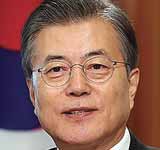
Moon started working as a lawyer with the future president Roh Moo-hyun. They would maintain a friendly relationship until the latter's suicide. Together with Roh, they specialized in cases related to human rights and civil rights. He was a member of Minbyun and the Human Rights Council in Busan. He was a founding member of the Korean newspaper The Hankyoreh, in 1988.
24. Justin Trudeau

Justin Pierre James Trudeau is a Canadian liberal politician. After the victory by an absolute majority of the Liberal Party in the federal elections of October 2015, he is the Prime Minister of Canada since November 4, 2015. He leads the Liberal Party of Canada since April 14, 2013. Since 2008 it is parliamentary by the electoral district of Papineau. He is the eldest son of Pierre Trudeau, former Prime Minister of Canada, considered the refounder of modern Canada.
25. Lee Hsien Loong
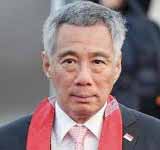
26. Bashar al-Assad
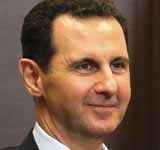
27. John Roberts
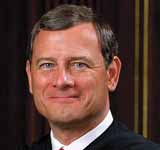
28. Enrique Peña Nieto
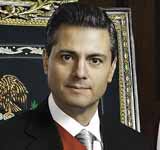
29. Mike Pence
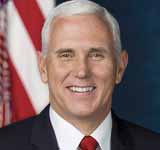
30. Qamar Javed Bajwa
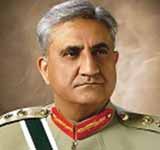
31. Rodrigo Duterte
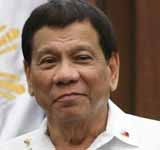
32. Robert Mueller
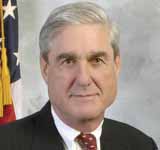
33. Abu Bakr al-Baghdadi
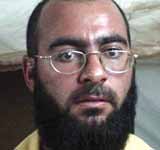
34. Joko Widodo
